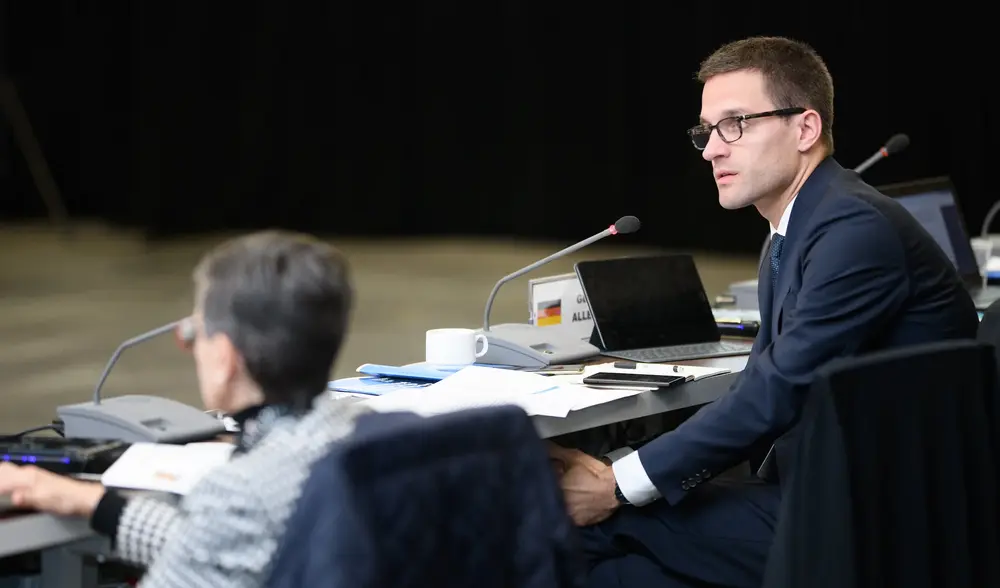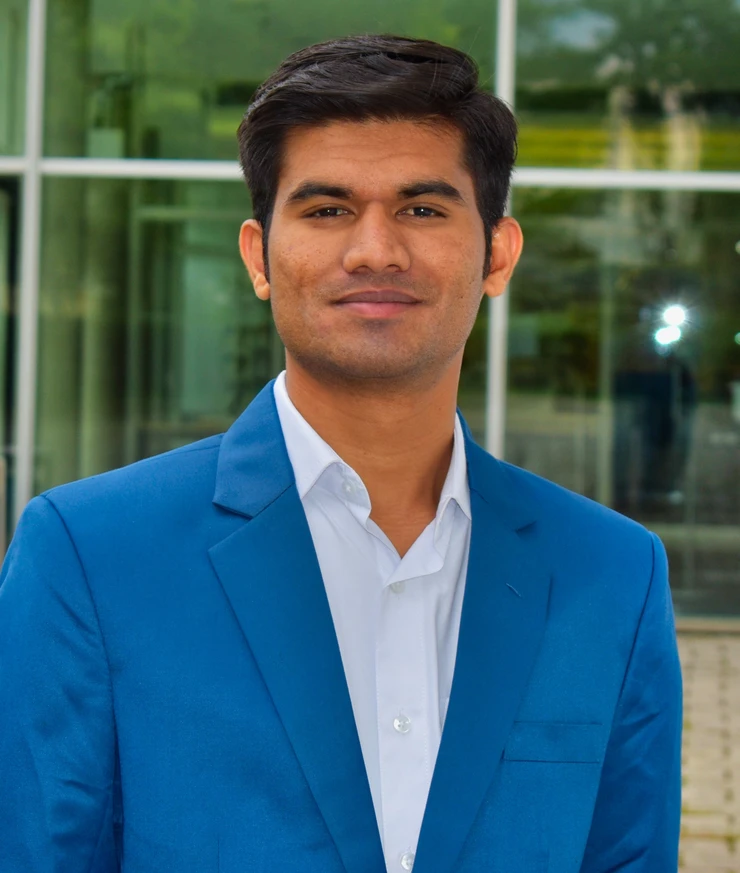The Bulletin interviews: Sebastian Haselbeck

Photo credits: OGP
Sebastian Haselbeck comes from Germany and graduated from the Brandt School in 2010. He currently works as Policy Advisor for Open Government and Digital State at the German Federal Government.
In this interview with our second year MPP student Yuvraj Sakhare, conducted on October 7, 2021, Sebastian talks about his background, his time at the Brandt School, current activities and share some tips for current students.
Thank you for speaking with us! Could you please tell us about your educational background and what inspired you to pursue a master’s in public policy?
I began college with a major in American Studies and a minor in Political Science, but ended up the other way around. After returning from a year abroad and finishing my thesis, I looked around for masters degrees beyond “regular” political science (I did look into international relations as well). I don’t remember if it was an article that caught my attention, but ended up looking into public policy and public governance programs specifically, in Germany and elsewhere. Back then my thinking was that an inter-disciplinary and practice-oriented addition to my academic CV would help me make better sense of the world, as I had already regretted not taking some economics and law courses on the side to broaden my academic horizon. To cut a long story short, I ended up at what was then called the ESPP and found almost exactly what I was looking for.
How would you describe your time at the Willy Brandt School first as a student and then as a Guest Lecturer?
My time at the school as a student was a blast! The international group of students, the diverse curriculum and the close-knit atmosphere made for a thoroughly enjoyable experience. There was ample opportunity to focus on interesting projects, to be creative in the choice of internship and to work for and with interesting people from around the world. Since I drew so much from this experience, I wanted to give back a little and taught two block seminars after graduating. That experience was just as rewarding. Not only did it allow me to sink my teeth into some academic reading (which is always a luxury upon leaving university), I was also able to convey some - what I believe to be important - insights to a group of bright and future minds who followed in my footsteps. I can wholeheartedly recommend teaching to anyone considering it.
You have been working in the field of digital policy and digital governance. What would you say has been the major change in the field?
The so-called post-Snowden world constituted a harsh break for the field and once and probably for all did away with many utopic or primariy idealistic visions of our digital future. The open web, that John Perry Barlow momentum, the “do no evil” intentions of corporations or the romantizied notion of governments as passive or neutral arbiters, or mere catcher-uppers, these things were no longer realistic parameters. No matter which specific policy field one worked on, it would now be under the realization that this technological development ist just as much subject to political interests, malice and societal influence as is every other human development. A lot of people working on digital policy issues thought of themselves as being more or less on the same time, a digital avantgarde, but that idea, as implausible as it always was, crumbled away quickly and the political, econonomic and ideological fault lines were laid bare. Other major changes have since dominated the field but nothing probably as major as this.
You currently work with the German Chancellery as a Policy Advisor for the Open Government. Could you tell us about your work within the Chancellery and how your experience has been so far?
My main responsibility is coordinating Germany’s participation in the Open Government Partnership, a group of 78 countries and almost as many “sub-national” participants that are committed to transparency, participation and accountability in their conduct of government. In my coordinative function at the Chancellery, this involves a fair share of international relations and diplomatic work (because it is an international partnership), with big summits every now and then for example. The main tasks involve co-creating national action plans together with civil society every two years to move the needle on open government and contribute to culture change in public administration, toward innovation and trust and cooperation. This experience has been very challenging, often times frustrating, but also very worthwhile and rewarding. It requires me to play the full array of instruments a public policy entrepreneur needs to play as well as building on the experiences I gained on previous jobs. Lastly, working in the Chancellery is of course a privilege and a challenge at the same time.
What advice would you give to someone who wants to work in the field of digital governance and technology policy? What skills students should develop?
Every policy area can benefit from fresh ideas, inter-disciplinary approaches and visionary mindsets of course. I would recommend anyone looking into digital policy to have at a minimum a basic to advanced understanding of the technologies in question (not necessarily to the level of a computer scientist or engineer, but definitely beyond newspaper know-how), this already bestows a certain elite status. How the internet works, how digital technologies work, what these developments mean for politics, economics and society, and so on. In addition, today’s problems require flexibility and far-sightedness, so it definitely pays out to have some knowledge of various disciplines and a decent set of job experiences to build on when sinking your teeth into probably one of the most dynamic policy areas today. What students need to understand is how technology shapes society, politics, economics and culture, it is not enough to know products and business viewpoints - and how policy, culture and economics shapes technology, so that you can shape the policies and governance that create public value.
Any professional or personal advice to the upcoming MPP students?
A master’s degree is not just a curriculum. You’ll get the most out of your degree without having regrets by thinking of the curriculum as the outside frame of your jigsaw puzzle. Now you should set out to fill the rest of the picture with your personal puzzle pieces: the friends you make, the people you meet, the projects you failed at, the papers you wrote, the trips you went on, the places you saw, the languages you learned, the books you loved, the arguments you had, the things you taught, ideas questioned, insights gained. You have two years to piece together your MPP puzzle, and if there’s one thing for sure it is that you will be so glad later about every piece you put in there. Others around you, employers and colleagues alike, will recognize whether yours was a rich and diverse puzzle picture, or merely an empty frame or a generic image. The MPP program gives you the tools, but you’ll have to build what you are as a professional yourself. The great thing about it: you’re not alone.

About the interviewer
Yuvraj Sakhare is a second-year MPP candidate at the Willy Brandt School of Public Policy, specializing in International Political Economy and European Public Policy. He holds a Postgraduate Diploma in Journalism and has worked as a Business & Economy editor in India. Yuvraj's academic and research interests lie in state-market relations, trade policy, economic governance, foreign policy analysis, and Chinese affairs. He is currently the editor of The Bulletin.
~ The views represented in this blog post do not necessarily represent those of the Brandt School. ~